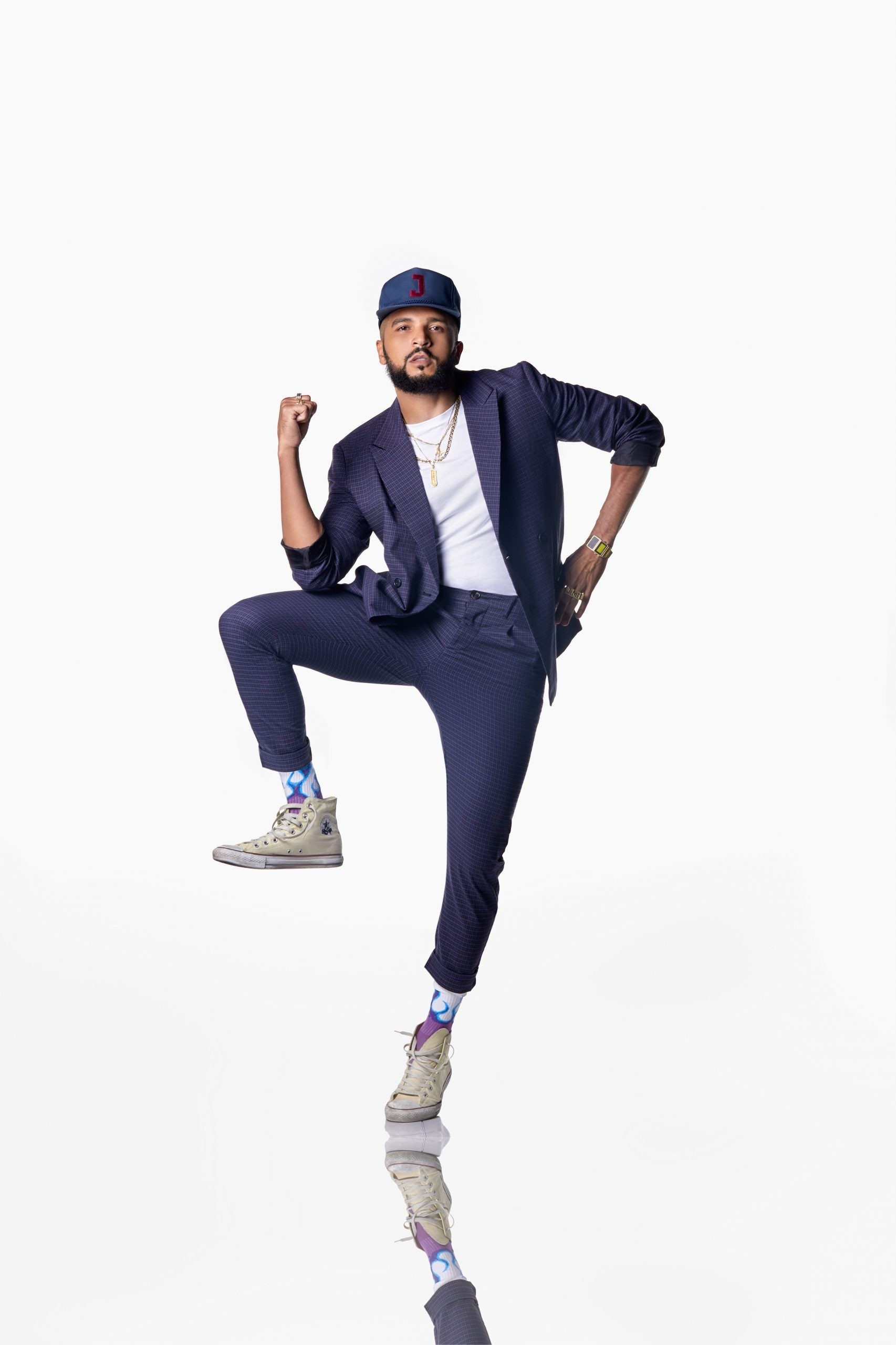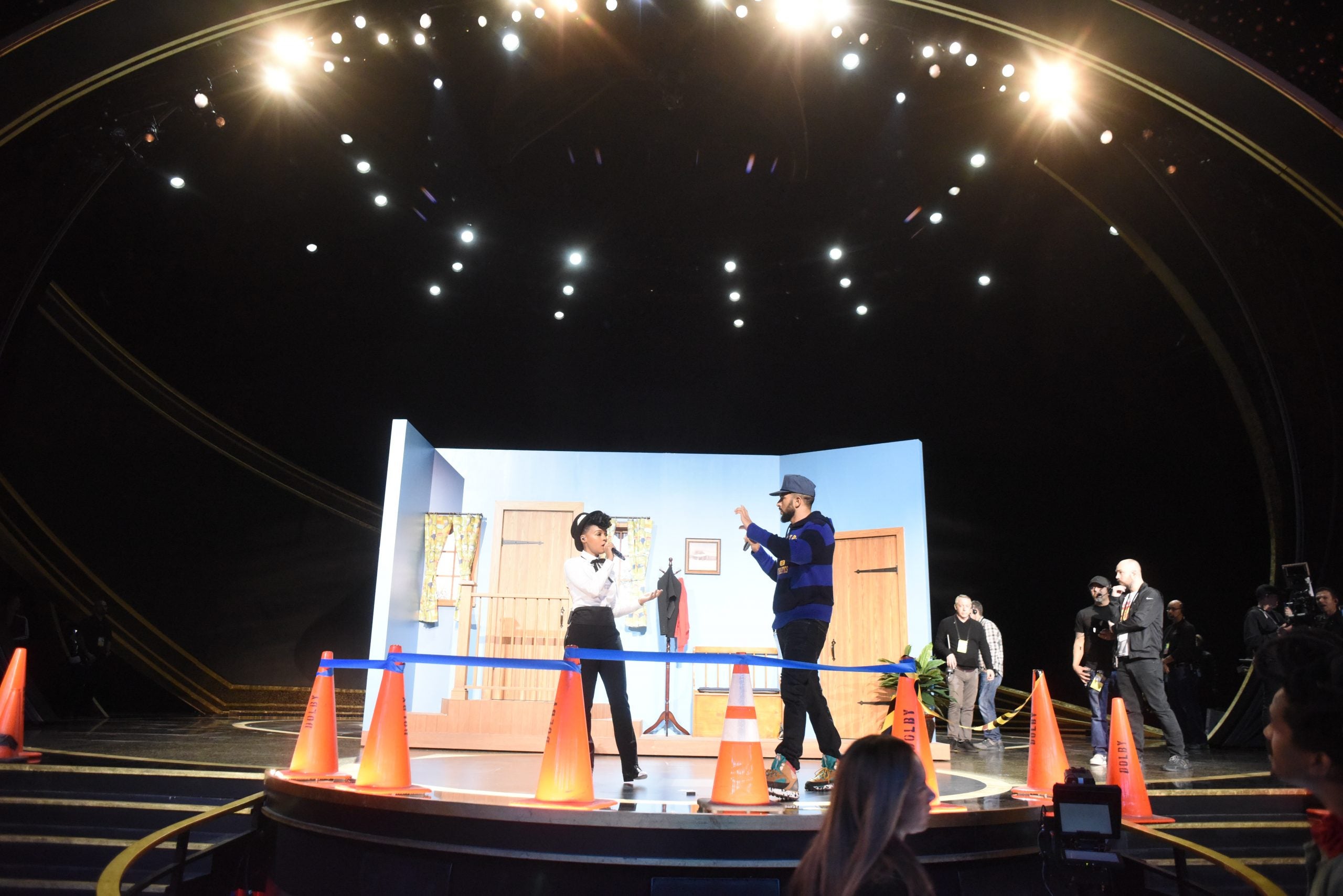
Long before Jemel McWilliams was teaching Janelle Monáe, Lizzo and John Legend how to move, he was jumping out of his mother’s car when he heard Michael Jackson on the radio.
“I don’t know what happened, the spirit hit me,” laughs the creative and artistic director. “We were literally at the stop light, I start doing Michael Jackson dancing and my mother cursed me out like, ‘Boy, if you don’t get your butt in this car.’”
But what happened next put the Washington D.C. native on the path to becoming an Emmy nominated choreographer. McWilliams has been recognized for outstanding choreography for variety or reality programming for his work shaping Janelle Monáe’s opening performance at The Oscars. His category will be presented at the Creative Arts Emmys Awards virtual ceremony on Saturday, September 19.

But let’s go back to that stop light in D.C.
“This lady start honking this horn behind us and pulls my mother over. My mom’s thinking, maybe the gas tank was open or something,” says McWilliams. “The lady was like, ‘I own this center for the arts and your son is a star, I will give him a scholarship.’ And then from there, I’ve been in the arts.”
The wunderkind started dancing locally after joining the creative dance center, D.C. ShowBiz Kids. He stayed dedicated throughout high school but opted for a more traditional path for college. However, he couldn’t deny his heart. “I went to college and [majored in] Marketing Management Information System. Then left, moved to New York and thought I was going to corporate America. I didn’t last a year. Literally, I was that guy who was there, waiting to be fired because it just wasn’t my passion and I knew.”
After years of teaching hip hop at after schools in The Bronx public schools, he went back to training professionally as a dancer. The reconnection with his first love paid off. Before he knew it, McWilliams was dancing on stage with Beyoncé, Kelly Rowland, Nicki Minaj, Mariah Carey and more. But it was his work with Alicia Keys that moved the needle in his career. “Because I was working on myself, [I went from] as an assistant choreographer and then moved to choreographer, then moved up from that to associate artistic director with Alicia Keys for her Girl On Fire tour.”
With his acumen for expressive movement, McWilliams now counts three of music’s biggest acts as his clients. “I’m currently Lizzo‘s live show artistic director and choreographer, as well as John Legend’s live show artistic director and choreographer, as well as Janelle’s live show artistic director and choreographer,” he pauses for a break. “Those are my clients currently that I can manage.”
Wait, how do you manage?
“God, I don’t know. I just love what I do and God somehow works it out.”
So, what does “working it out” really mean in McWilliams world of high-octane performances with A listers? He has a story.
“For instance, Janelle was doing Coachella as well as Lizzo. I ended up booking a L.A. dance studio that has four big studios in it,” the artistic director remembers. “I had a set of assistant’s and dancers working in one room, while I would bounce around from room to room to room. Sometimes it gets a little crazy, but I don’t know, it somehow works out. That’s just the beauty of alignment. You know what I mean?”

There’s something else too that helps McWilliams be in two places at once. “When you’re called to something… I’m a fervent prayer. I pray, or I do a lot of praying and I ask God to just always align me.”
The heavens aligned for McWilliams once Janelle Monáe had been tapped to perform at the 2020 Academy Awards. Starting in January, they both worked with a laser focus on what the performance would entail—especially one that would keep Monáe’s individuality center stage. Although they went with Monáe’s 2009 single “Come Alive”—with added references from the year’s best films—the live moment became, as McWilliams says, “unprecedented.”
“The number of Black people that you saw on that stage… Opening the show was a Black, queer woman, who brings the people happy Black History Month. The song goes down the history,” he says. “You can’t erase what this performance did for inclusivity.”
McWilliams adds: “It’s very layered and it’s layered in a way that we as a people, as a community, Black people feel extra proud of it. I was very proud that it’s the performance that I can always say, ‘I am an Emmy nominee.’”
